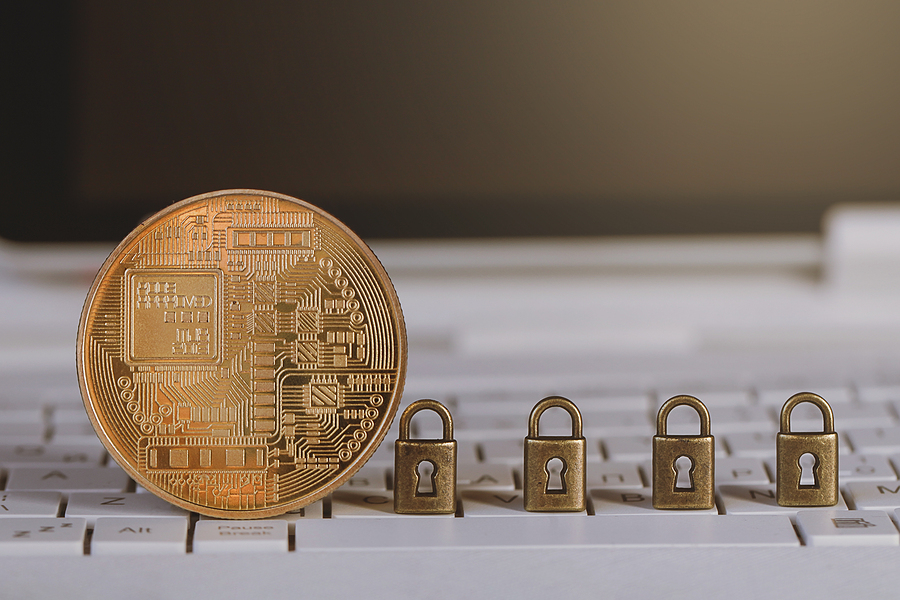In the realm of digital finance, cryptocurrency, a virtual currency operating on decentralized networks with a foundation in cryptography, stands apart from traditional currencies governed by central authorities. The surge in prominence of cryptocurrencies, exemplified by the widespread adoption of digital assets like Bitcoin and Ethereum, has disrupted conventional financial systems. This disruption marks a shift towards a more decentralized financial landscape. However, this ascent is accompanied by a proportional increase in cybersecurity concerns. The decentralization that imparts resilience to cryptocurrencies also poses unique challenges, as cybercriminals exploit vulnerabilities within the ever-evolving digital sphere. Visit quantum-trodex.com if you are looking for a website that helps people learn about investments by connecting them with investment education companies that can help them receive the right information.
The Nexus of Cryptocurrency and Cybersecurity
Table of Contents
Overview of Cryptocurrency Transactions
Cryptocurrency transactions involve the exchange of digital assets through secure cryptographic protocols. These transactions, recorded on a blockchain, are transparent, immutable, and resistant to fraud.
Vulnerabilities in Traditional Financial Systems
The vulnerabilities of traditional financial systems, susceptible to fraud, central points of failure, and third-party intervention, have driven the emergence of cryptocurrencies as a more secure and resilient alternative.
Emergence of Blockchain Technology
Blockchain, the underlying technology of cryptocurrencies, ensures a tamper-resistant ledger. Its decentralized and distributed nature makes it highly resistant to cyber threats, providing a foundation for secure financial transactions.
Security Challenges in the Cryptocurrency Ecosystem
Hacking and Data Breaches
Cryptocurrency exchanges have witnessed high-profile hacking incidents, resulting in the theft of digital assets. These breaches underscore the importance of robust security measures to protect users and maintain trust in the ecosystem.
Phishing Attacks and Social Engineering
Cybercriminals employ sophisticated phishing tactics to exploit vulnerabilities in the human element of cryptocurrency security. Targeting wallets and exchanges, these attacks highlight the need for user education and enhanced security measures.
Security Measures in the Cryptocurrency Ecosystem
Wallet Security and Best Practices
Cryptocurrency wallets serve as the digital repositories for users’ assets, and understanding their nuances is paramount for ensuring the security of digital holdings.
Exploring Types of Cryptocurrency Wallets
- Hardware Wallets:
Hardware wallets, physical devices that store private keys offline, provide an added layer of security by keeping sensitive information away from internet-connected devices. They are immune to online hacking attempts, offering a secure means to store and manage cryptocurrencies.
- Software Wallets:
Software wallets, available as applications on computers or mobile devices, are convenient but susceptible to online threats. Users must prioritize reputable wallet providers and follow stringent security practices to safeguard against potential vulnerabilities.
- Paper Wallets:
Paper wallets involve storing private keys on physical documents, offering an offline and secure method. However, caution is required during creation and storage to prevent physical damage or loss.
- Web-based Wallets:
Web wallets operate through online systems, providing accessibility but raising security concerns. Users should exercise caution and opt for systems with robust security features and a trustworthy reputation.
Implementing Robust Security Practices for Wallets
- Backup Procedures:
Users should diligently create secure backups of their wallet’s private keys or recovery phrases. This precaution ensures access to funds in case of device loss or failure.
- Regular Updates:
Staying abreast of wallet software updates is crucial for integrating the latest security patches. Outdated software may expose vulnerabilities, making users susceptible to attacks.
- Multi-Signature Authentication:
Some wallets offer multi-signature functionality, requiring multiple private key signatures to authorize transactions. Implementing multi-signature authentication enhances security by reducing the risk associated with a single compromised key.
- Secure Network Practices:
Users must exercise caution when accessing wallets over public Wi-Fi or unsecured networks. Conducting transactions on secure networks and utilizing virtual private networks (VPNs) adds an extra layer of protection.
- Phishing Awareness:
Educating users about phishing threats is essential. Avoiding suspicious links, emails, or messages that may attempt to trick individuals into revealing their wallet credentials is critical for maintaining security.
- Cold Storage Usage:
Cold storage involves keeping wallets completely offline, providing an additional safeguard against online threats. For long-term storage of significant amounts, cold storage options such as hardware wallets or paper wallets are advisable.
Safeguarding Cryptocurrency Assets
Importance of Secure Wallets
Securing cryptocurrency assets begins with choosing secure wallets. From hardware wallets to paper wallets, understanding the types of wallets and adopting best practices is crucial for safeguarding digital assets.
Two-Factor Authentication and Multi-Signature
Enhancing authentication protocols through two-factor authentication and multi-signature wallets adds an extra layer of security. These measures significantly reduce the risk of unauthorized access and protect users from potential threats.
Regulatory Measures and Compliance
Governmental Response to Cryptocurrency Security
Governments worldwide are responding to the surge of cryptocurrencies by introducing regulatory measures. These initiatives aim to strike a balance between encouraging advancements and ensuring consumer protection.
Compliance Standards for Cryptocurrency Exchanges
Regulatory compliance standards, such as Know Your Customer (KYC) and Anti-Money Laundering (AML) requirements, are becoming integral for cryptocurrency exchanges. Adhering to these standards helps mitigate risks and ensures a secure financial environment.
Privacy Coins and Enhanced Anonymity
Privacy Coins and Enhanced Anonymity
Privacy-focused cryptocurrencies aim to address the privacy concerns associated with traditional digital currencies. Understanding the challenges and benefits of these coins is crucial for navigating the evolving landscape of digital privacy.
Decentralized Finance (DeFi) Security Challenges
Decentralized Finance (DeFi) systems, while promising financial inclusivity, introduce new security challenges. Risks associated with smart contracts and the auditing of DeFi protocols require careful consideration to ensure a secure financial ecosystem.
Future Trends and Considerations
Quantum Computing Threats
The potential advent of quantum computing poses a unique threat to cryptographic security. Preparing for this quantum era requires research and development to adapt cryptographic methods, ensuring the continued security of digital assets.
Integration of Artificial Intelligence in Security
The integration of Artificial Intelligence (AI) in cryptocurrency security enhances threat detection capabilities. However, ethical considerations and challenges in deploying AI responsibly necessitate a careful approach to strike a balance between security and privacy.
Conclusion
In conclusion, the intricate relationship between cryptocurrency and cybersecurity highlights the imperative for strong security measures within the digital financial realm. The ongoing evolution of the cryptocurrency landscape necessitates constant vigilance and adaptability to address emerging threats effectively. It is paramount for users, exchanges, and regulators to collaboratively contribute to the establishment of a secure environment for digital transactions. By empowering users with knowledge, implementing resilient security practices, and fostering responsible regulatory frameworks, a foundation for the sustainable growth of the cryptocurrency landscape can be laid. This collective effort will play a pivotal role in ensuring the long-term resilience and security of the digital financial ecosystem.
Image Source: BigStockPhoto.com (Licensed)
Disclaimer
Cryptocurrency products are unregulated and can be highly risky. There may be no regulatory recourse for any loss from such transactions.
The Information on this website is provided for educational, informational, and entertainment purposes only, without any express or implied warranty of any kind, including warranties of accuracy, completeness, or fitness for any particular purpose.
The Information contained in or provided from or through this website and related social media posts is not intended to be and does not constitute financial advice, investment advice, trading advice, or any other advice.
The Information on this website and provided from or through this website is general in nature and is not specific to you the user or anyone else. You should not make any decision, financial, investment, trading or otherwise, based on any of the information presented on this website without undertaking independent due diligence and consultation with a professional broker or financial advisory.
You understand that you are using any and all Information available on or through this website at your own risk.
The trading of Bitcoins, alternative cryptocurrencies has potential rewards, and it also has potential risks involved. Trading may not be suitable for all people. Anyone wishing to invest should seek his or her own independent financial or professional advice.
Related Categories: Cryptocurrency, Reviews








